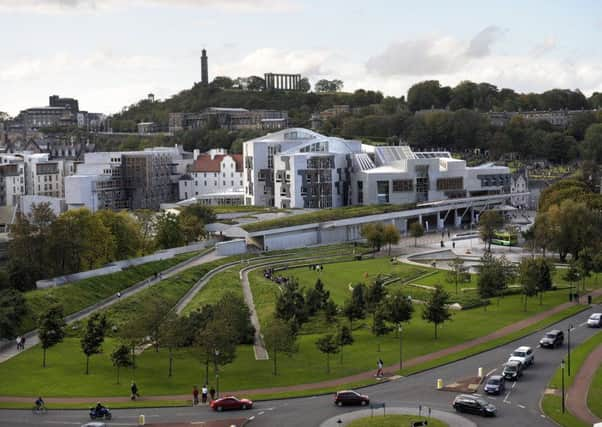Edinburgh business owners could have premises revalued every three years


It follows a review of the system by former Royal Bank of Scotland chief Ken Barclay, which made a series of recommendations, including ending the rates relief currently enjoyed by independent schools because of their charitable status.
Other proposals include carrying out valuations every three years, rather than the current five-year period, and tackling known tax avoidance, including tactics involving unoccupied or under-used properties.
Advertisement
Hide AdAdvertisement
Hide AdHolyrood’s local government and communities committee is inviting comments on various aspects of the Non-Domestic Rates (Scotland) Bill.
Committee convener James Dornan said: “Non-domestic rates are the second highest revenue-raising tax in Scotland and these reforms could affect a great number of people.
“We are keen to hear the views of potentially affected organisations and members of the public about the proposed changes to the system, and whether the government has addressed the issues raised in the Barclay Review.
“We also want to know if people think anything else should be included in this Bill or if more radical reform of the system is needed.
Advertisement
Hide AdAdvertisement
Hide Ad“We look forward to hearing what the public has to say and using the evidence to ensure our inquiry is as robust as possible.”
Under the current system, independent schools with charitable status pay 20 per cent of their rates bill, while local authorities have the discretion to charge them nothing at all. The Bill, put forward by Finance Secretary Derek Mackay, proposes removing the charitable relief, which would amount to £37 million between 2020 and 2025.
George Watson’s College, Edinburgh’s biggest independent school, warned last month that fees could increase by seven per cent as a result of the loss of business rates relief and higher teacher pension contributions.
The committee is also interested to receive feedback on the more frequent revaluations proposed; tax relief reforms for new or improved properties, intended to encourage development and investment in business properties; and clarification on when sports clubs should be allowed rates relief.
Advertisement
Hide AdAdvertisement
Hide AdIn addition, they are keen to hear what people think of a measure intended to address a perceived “loophole” that enables owners of holiday homes to avoid both council tax and non-domestic rates by making it more difficult to enter a home on the roll and an alteration to enable councils to initiate debt recovery proceedings for unpaid rates sooner.